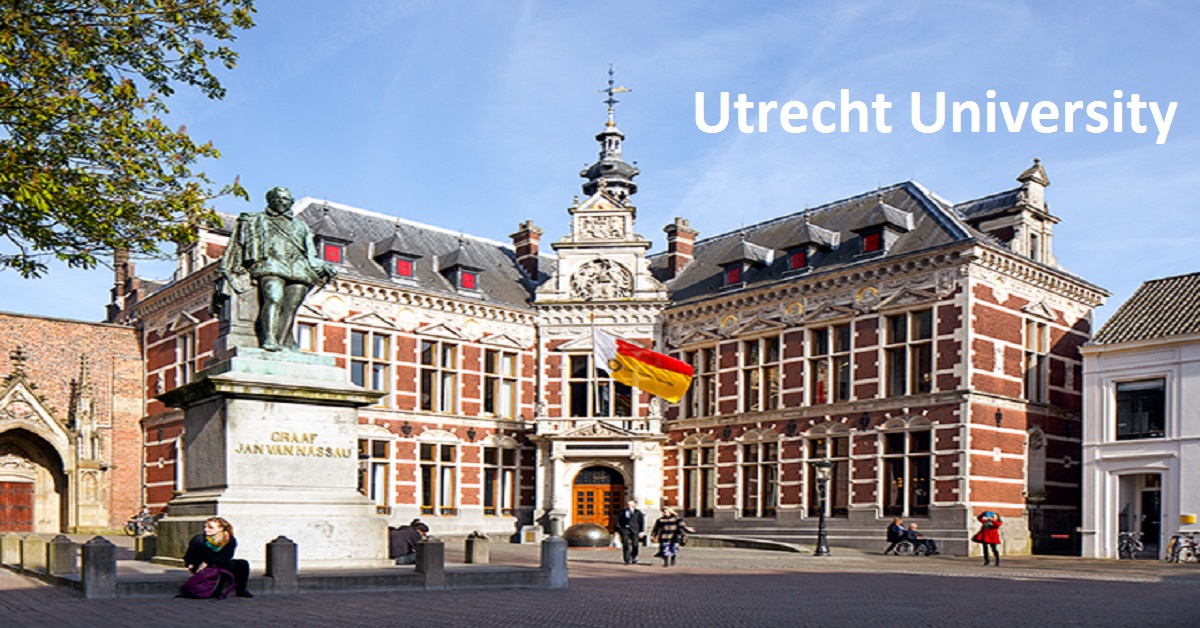
Job description
High mountains are hotspots of biodiversity, prone to natural hazards and important for downstream water supply. Predicting consequences of environmental change is therefore important, while challenging. A historical perspective and case studies of past hydrological and environmental changes will add to our ability to model these complex systems and anticipate future changes. A critical question in the hydrology and landscape dynamics of high mountains is the role of the vegetation in response to climate change. Lake sediments in mountain areas record past environmental changes often with high temporal resolution, allowing to link observations with reconstructions. Multiproxy analyses of lake sediments provide understanding of the interactions between changes in meteorological conditions and vegetation, erosion, and runoff.
The department of Physical Geography at Utrecht University (DPG-UU) aspires to address knowledge gaps in hydrological and environmental changes in high mountains by combining the expertise of two research lines within DPG-UU. The mountain hydrology group is currently using observational and modeling approaches to study impacts of global climate change on the water budget and Earth surface dynamics in mountain regions. The paleoaeoecology group has currently a strong expertise on all aspects of pollen analysis and quantitative vegetation and climate reconstructions. Furthermore, the department has expertise on developing artificial intelligence solutions to further develop proxy calibration and quantitative reconstructions.
The proposed assistant professor will work at the interface between mountain hydrology, geomorphology and palaeoecology and bridge the gap between observations, modelling and climate reconstructions. Chronology development on decadal to centennial timescales is therefore of special interest. We like to complement our expertise with innovative proxies (sedimentological and/or biological) suitable to address changes and responses in mountain hydrology, geomorphology and ecology from a long-term perspective.
Qualifications
The successful candidate:
- has a PhD in palaeoecology or sedimentology preferably with a track record in reconstructing hydrological changes in mountain regions based on proxies.
- ideally has experience with one or more of the following techniques: inorganic proxies (XRF scanning, grain size analysis), biological proxies (such as aDNA/eDNA, macrofossils, diatoms), isotope analysis of inorganic or organic sediment compounds;
- is able to setup an own distinct research line in the field with the successful acquisition of research projects;
- shows a willingness to integrate insights from proxy analysis in hydrological and landscape models;
- is enthusiastic about using own research insights and outcomes in palaeoecology and hydrology related courses in our BSc and MSc program;
- is considerate to the fact that successful and impactful research is a team effort;
- has excellent oral communication and writing skills.
Vegetation, geomorphology and hydrology in high mountain regions form a complex system which is susceptible to climate change. The dynamics and interactions in this system on longer timescales need to be unravelled for system understanding and to anticipate future changes. We are looking for a paleoecologist or sedimentologist with broad experience in high alpine environmental change to jointly develop the interface between hydrology, geomorphology and paleoecology in mountain regions.
Offer
We offer a position (0.8 – 1.0 FTE) as an Assistant Professor for a probationary period of 18 months. Permanent employment will be offered based upon good performance, according to the Faculty’s performance indicators, after 18 months. The Faculty of Geosciences has an excellent merit-based career and promotion policy. As part thereof, career development up to Associate Professor (level 2) is possible without a so called ‘formation principle’, yet based on performance. The gross monthly starting salary – depending on qualifications and experience – ranges between €3,974 and €5,439 (scale 11 of the Collective Labour Agreement of Dutch Universities) for a full-time employment.
Salaries are supplemented with a holiday bonus of 8% and an end-of-year bonus of 8,3% per year. In addition, you will have access to all equipment in our state-of-the-art laboratory infrastructure, coaching for teaching and supervision of researchers, and training and support regarding the acquisition of external funds. Utrecht University offers excellent secondary conditions, including an attractive retirement scheme, (partly paid) parental leave and flexible employment conditions (multiple choice model). For more information, please visit working at Utrecht University
. Facilities for childcare and sports are available on campus.
About the organisation
A better future for everyone. This ambition motivates our scientists in executing their leading research and inspiring teaching. At Utrecht University
, the various disciplines collaborate intensively towards major societal themes. Our focus is on Dynamics of Youth, Institutions for Open Societies, Life Sciences and Sustainability.
Utrecht University’s Faculty of Geosciences
studies the Earth: from the Earth’s core to its surface, including man’s spatial and material utilisation of the Earth – with a focus on sustainability and innovation. With 3,400 students (BSc and MSc) and 720 staff, the faculty is a strong and challenging organization. The Faculty of Geosciences is organized in four departments: Earth Sciences, Human Geography & Spatial Planning, Physical Geography, and Sustainable Development.
Additional information
For more information about this position, please contact Walter Immerzeel
external link or Friederike Wagner-Cremer external link via f.wagner@uu.nl. external link
You are also invited to join our online information session via Microsoft Teams on:
- Thursday 7 July between 10.00 – 12.00 CEST.
Click here to join the meeting external link
You can ask us about our profiles and tasks of the offered position, the possibilities of professional development, and moving to and living in Utrecht (housing, visa, schools, partner opportunities). We look forward to meeting you!
The faculty of Geosciences at Utrecht University is creating six assistant professor positions to strengthen its research and educational programmes in the field of climate science, climate impact and climate adaptation. Interested in our other positions? Click here
to see our brochure.
Apply
Everyone deserves to feel at home at our university. We welcome employees with a wide variety of backgrounds and perspectives. To apply, please send your curriculum vitae, including a letter of motivation via the ‘apply’ button below.
In addition, please add the following information with your application in a Word file:
- name and last name;
- title, year and institute of PhD thesis;
- current position and name of the institute;
- the keyword of Expertise 1, Expertise 2 and Expertise 3;
- (e-mail) addresses of two referees;
- the titles and URLs of three most relevant publications.
Interviews for this position will take place on: 6 or 7 September.
The application deadline is 15 August 2022.





